Parched Read online
Parched
Oil Apocalypse 3
Lou Cadle
Copyright © 2018 by Cadle-Sparks Books
All rights reserved. This book or any portion thereof may not be reproduced or used in any manner whatsoever without the express written permission of the author except for the use of brief quotations in a book review.
Sign up for information on new releases at www.loucadle.com
Table of Contents
Title Page
Copyright Page
Parched (Oil Apocalypse, #4)
Chapter 1
Chapter 2
Chapter 3
Chapter 4
Chapter 5
Chapter 6
Chapter 7
Chapter 8
Chapter 9
Chapter 10
Chapter 11
Chapter 12
Chapter 13
Chapter 14
Chapter 15
Chapter 16
Chapter 17
Chapter 18
Chapter 19
Chapter 20
Chapter 21
Chapter 22
Chapter 23
Chapter 24
Chapter 25
Chapter 26
Chapter 27
Chapter 28
The End
Author’s Note
Also by Lou Cadle
Sign up for Lou Cadle’s Mailing List
Chapter 1
Chapter 2
Chapter 3
Chapter 4
Chapter 5
Chapter 6
Chapter 7
Chapter 8
Chapter 9
Chapter 10
Chapter 11
Chapter 12
Chapter 13
Chapter 14
Chapter 15
Chapter 16
Chapter 17
Chapter 18
Chapter 19
Chapter 20
Chapter 21
Chapter 22
Chapter 23
Chapter 24
Chapter 25
Chapter 26
Chapter 27
Chapter 28
Chapter 1
“Dad!”
Zoe’s voice penetrated the walls of the barn. Sierra felt Dev’s hands drop from her back. Her own hands were damp and tacky from his sweat. It was a hot day, and the end of deodorants and long daily showers had been years ago.
She wiped her hands on her shorts and tugged her shirt down.
She shouldn’t be doing this anyway. It wasn’t fair to Dev, and it wasn’t fair to her. “Your daughter wants you,” she said, pushing him gently away.
“Your daughter too,” Dev said.
“Huh,” she said.
“I was there. She arrived via your body,” he said, rearranging himself. “C’mon,” he muttered.
She assumed that was an order to his own body part. “Your dad is in here, Zoe!” she called.
“I would have said that,” he said, “when I was ready.”
“Here. Take that empty bushel basket out to the garden for me. You can hide your remaining erection behind it. I need to get today’s harvest anyway.”
He grabbed the basket, and when the door opened, letting in harsh sunlight, he had it strategically held in front of him. “Hey, Punkin.”
“Dad, the black rabbit had babies.”
“That’s terrific!”
“How many?” Sierra said.
“Oh, hi, Sierra. I didn’t see you back there. The barn sure is dark. Want to come see them, Dad?”
“Sure, after I drop this off at the garden for your mom.” He shot a glance back at Sierra. More than nine years since Zoe had been born, and he still thought it would confuse her too much to call one of them “Dad” and the other by her first name. It did not.
Not that Sierra often heard her daughter call her anything at all. Zoe was definitely Dev’s kid. Not only because he was the only candidate, but because she was so very much like him. And they connected on some deep level. If she were less of a rationalist, she’d call it mystical. It wasn’t like her own close relationship to her father. It was more, somehow. They were best friends, which wasn’t so surprising, but they could nearly read each other’s minds.
Zoe lived with the Quinns. Sierra couldn’t bring herself to entirely hate the distance between herself and her daughter for one major reason. Dev’s relationship with his father, always strained, had been a source of pain for him as a child and teenager. That he was able to overwrite that with his own very close relationship with Zoe? Only a truly evil person would resent that.
And Sierra wasn’t evil. She was just dead inside. Oh, not wholly dead. She still laughed, and she had cried when that useless dog Jasper had died. But the events that had happened back when gasoline ran out—all the violence, all the killing she had done, the guilt and the years of flashbacks—had destroyed some part of her. She thought of it as equal to a stroke that took out a section of the brain, leaving a person incapable of speaking correctly, but perfectly capable of seeing and hearing.
She’d had a stroke of the heart, of the spirit. Bits of her were dead that were never going to come back to life. If they hadn’t in a decade, they weren’t going to now. She accepted that—didn’t love it, but knew it to be true. No wonder Zoe preferred her father. Sierra knew this, and it hurt now and then. This was simply one of those days.
She followed Dev and Zoe outside. The sun pounded down, but the dry air sucked away her sweat nearly as fast as she could make it. Not even ten in the morning and already as hot as hellfire, as Arch would put it. Gasoline wasn’t being burned any more, and probably not coal or natural gas anywhere in what used to be the United States, and probably not in Canada either, but the costs of burning it for a hundred fifty years were still with them. Climate change was real, and they were living a nasty side of it.
Their land grew hotter and dryer every year. She couldn’t even imagine what sort of oven the valley that had once held Phoenix might be like by now, but up here in the pine forests, only a quarter of the trees were still alive, most having been killed by the heat, drought, and by opportunistic insects like the bark beetle. Their vegetable gardens needed constant watering. The drought-resistant amaranth that Dev’s mother Kelly had planted down the hill was a lifesaver. They only went to tend it once every week during dry spells, and it still survived, giving them a rough kind of flatbread that, along with potatoes, provided most of their calories.
The wheat flour was long gone, even though Arch and Kelly had hundred-pound barrels of it hoarded when this all began. And all the leavening, the yeast and baking powder, was nothing more than a distant memory. Kelly had for a short time experimented with sourdough starter, trying to capture yeast out of the air, but after a winter of failing, she had given up, saying the Arizona air was too dry to keep any wild yeast alive. Zoe didn’t even remember sandwich bread or muffins or cupcakes. Kelly had baked her last batch of those for Zoe’s fourth birthday, with two cups of flour she’d set aside, along with just enough powdered sugar to sprinkle over them. Though the flour had tasted stale, everyone but Zoe had eaten their one treat slowly, understanding it was the last cupcake they’d ever eat, trying to memorize the taste to last them a lifetime.
Sierra tied on her straw hat and watched Zoe and Dev walk away, Dev matching his gait to Zoe’s, past the slowly spinning wind turbines, and off to the Quinn house.
Dev had grown into a tall man, taller than his own father, leanly muscled, attractive. And he was still her friend, but she’d never loved him the way he had loved her—no, as he had once loved her. He felt that no more, she was certain.
Zoe was dark-haired like Dev, and her nose was Kelly’s. She had an easy, athletic lope, a comfort in her own body that
had never been marred by bullying at school or advertisements telling her that her natural physical self was lacking in any way.
She’ll be a woman soon enough. Starting her periods any time.
And I’ll be thirty before I know it. Thirty and in my sexual prime, according to Joan.
Because thinking of Zoe was too complicated, she thought about that other thing as she weeded the garden, feeling as if an important part of life was drifting out of her reach, maybe forever. Dev was really her only realistic choice of sex partner. Trips down to the other neighborhood now took a daylong bike ride, and she’d only done that once the past year. The last trip any of them had taken into Payson had been nearly three years ago, in October. An outbreak of a fever had lowered the population there to less than two thousand. Though it was only forty miles distant, for all she knew of its condition now, it might as well be on the other side of the Earth.
So if she wanted a lover, her options were two: Dev, or Curt. And Curt had put her off years ago the one time she’d suggested it, right around the time Zoe had been weaned. She hadn’t gathered the courage to try and approach him again.
Rod, the adopted son of Joan, was old enough now, but Sierra still thought of him as a little kid, despite that he was almost twenty. She’d put bandages on his skinned knees and taught him how to shoot a rifle. She’d never think of him as a potential mate. He’d always be like a nephew to her.
And so her choice was narrowed to one—Dev. And Dev’s choices weren’t much better. Misha was the age Sierra had been when she’d learned to kill men to defend her home. But Dev felt much about Misha as Sierra felt about Rod. And Emily—well, Emily, though twenty-three now, was still damaged from her childhood trauma.
Enough. You’ve been over this in your mind before. A million times. You’re sexually frustrated, but that never killed anyone.
Time to put up the garden screen. Another one of Kelly’s good ideas—or fortuitous accidents, if you were to believe Kelly. She’d bought up some light-colored cotton material right when oil had run out. The Walmart food shelves had been nearly empty because no gasoline meant the food deliveries everyone had once taken for granted had stopped. The empty shelves had forced Kelly to get creative in her shopping. While Kelly claimed she had been thinking only of sheets and bandages when she bought it, the cloth now served as shade for the cabbage, carrots, kohlrabi, and broccoli plants that would bolt in this heat if left in the pounding sun. At ten-thirty, everyone put up the cloth screens to shade their gardens, and they didn’t come back down until the sun fell behind the pines.
It was so hot—an old mercury thermometer of Curt’s was all they had to go on now, and every day in June had crested 100F—that the tomatoes had been harvested by June the first. What tomatoes they had canned a month ago would be all they had for the year, for by the time the temps would fall to 90—cool enough for tomatoes to set fruit again—the days would be too short to ripen the fruit. Considering how thirsty tomato plants were, it wasn’t a smart use of water, so they only grew them in spring. The only bright side of the heat for their garden was that they could grow chard and spinach right up until January first.
Their slice of paradise up on the slopes of the mountains was turning slowly, inexorably, into a high desert. The desert must extend from LA to Payson by now, and possibly all the way through Texas, a vast, unbroken stretch of parched sand and scrub plants. She tried to remember the maps of the world, what country might be that size. Tibet? Maybe not that big. She was losing everything she had learned in school from disuse.
Curt walked up just as she was finishing the day’s harvest—a dozen kinds of peppers and stunted sweet potatoes. He held his crossbow. “I’m going out hunting. If you need anything at my house, it’s unlocked.”
She still didn’t feel comfortable wandering in and out of his cabin, though he swore it was fine with him. “I can’t think of what I would need.”
“Tools? To read the temperature.”
“That’s outside. And I don’t think I want to know. There’s something depressing about seeing it hit one hundred this early in the day, you know?”
“I’ve never found it a good use of energy to hate the weather. Or to resent time passing.”
She looked at him more closely. The disease that had ravaged his features as a young man seemed to be taking an additional toll on him as he grew older. His brow ridge seemed more pronounced, or maybe that was just how the sun threw a shadow from it. He wasn’t much past forty, and the light color of his hair disguised the gray until the sunlight glinted off the few strands of silver, as it did now. “You in pain?”
“Usual,” he said, with a dismissive shrug. “Anyway, I’m going to try and get another javelina. Meat for everyone on the road if I bag one.”
“Be careful,” she said. Javelina were aggressive, and they seemed to understand that they were no longer at much risk of being shot with guns. They’d charge you as soon as look at you.
“Always,” he said. “I’m going to let Arch know he might need to fire up the smokehouse if I manage to kill one. Make sure he’s ready.”
“Good hunting. If you get one, I’ll have you over for stuffed peppers, okay?” She knew he liked them.
“Stay in the shade if you can,” he said, and he crossed the yard in the wake of Dev and Zoe.
She wished she could stay in the shade. She had to collect eggs again—she did it four times a day in this heat—and then climb the central turbine tower to fiddle with it. Ten years ago, they had lowered it to hide their neighborhood from strangers’ eyes, and it had never been okay since, tending to tremors when the wind picked up, and it was making more and more noise every year. No way could she delay going up there today, for she’d found a bolt it had thrown yesterday as if it were a wild horse bucking off an unwanted rider.
Her mind slid sideways. Wild horses hadn’t likely survived the end of food deliveries. They hadn’t even seen a deer in two years now. Who would have thought that humans could have hunted deer to extinction in Arizona? But they apparently had. Or we apparently have, to be fair about it, she admitted to herself. She’d eaten her share of venison that first few years.
She took the basket of vegetables into the house. Joan was at the table, talking with Pilar, working at braiding T-shirt rags together. They made rugs and jackets out of them, the last step a shirt took on its way out.
Sierra’s own father, though over 50, got more sex than she did, though Joan and he didn’t seem to be in romantic love—just good friends and lovers. Sierra said, “Heya, Joan. How’s everyone?”
“Everyone is in the garden but Rodney, who is out on the trap line.”
“Have you seen Lily lately?” Lily was the offspring of Jasper, the red setter they’d found and adopted. She’d mated with what Curt had said was a Gray Wolf, a Mexican wolf expanding its range again after the end of busy highways and border guards keeping at the walls. The hens weren’t safe around her, but she spent a lot of time wandering—days away from the neighborhood, finding her own food. Perhaps she sensed she needed to. They certainly couldn’t spare any food for her, though Misha would have thrown a tantrum had anyone suggested killing the dog. As long as she left Sierra’s hens alone, she could live. But the instant she went for them, that dog would be in trouble.
“No, not in almost a week,” Joan said. “I wonder how long she’ll live. With her wolf ancestry, I mean. Do you know, Pilar?”
“Wolves?” he said. “Five or six years, I imagine. Possibly Lily will see more because she’s only half-wolf. And because she gets some help from us. She’s close to five, isn’t she?”
“Yeah. But she doesn’t get food from us. Misha’s old enough to know better, and I make sure she doesn’t get a chicken,” Joan said.
“No, but if she’s hurt or it’s cold, or she needs water, you help her with that.”
Joan looked at Sierra, who had begun to set out the peppers and yams on the counter for Pilar to deal with. “Need any help with the veggies?
”
“Only if Pilar asks. That’s his job. I’m going to put on long pants and I’m going back out.”
“You’re not climbing the tower?” her father said.
“Pilar,” she said, a bit impatient. “You’re certainly not climbing it.”
“I just wish you’d do it first thing, as soon as the dew dries.”
“What dew?” Joan said.
“You have a point,” Pilar said. “But early.”
“The wind is light today. I’ll be fine.” Better her than him up there.
“I’ll keep an eye out through the window.”
“Thanks,” she said. “First, I’ll drop off whatever eggs have been laid in the past four hours on the porch for you.”
The hen house could use a coat of paint, but that was another thing they had no more of. Curt said he believed paint could be made of clay—they had plenty of that—and water and dye and starch, but starch was the limiting factor. All the starch they grew, from amaranth to potatoes, they needed to eat. And so the wood that stood in the sun was starting to show its age.
The rooster took a run at her, but it was only for show. It stood panting afterward, tired out by the short dash.
The hens had come inside after a morning of foraging and were groggy with the heat. They didn’t even spare her a glance as she collected the eggs. They laid less in the heat, though she’d done everything she could to help them survive the hot summers. Every small solar cell they had owned had been converted to running fans for the hens or the Quinn rabbits. Curt had been instrumental in doing that. He had also devised stationary-bike-driven swamp-coolers. You grew crazy-hot pedaling one, but the hens stayed cooler, and on the days it peaked 110, she spent ten minutes out of every hot hour pedaling. Today Sierra found only five brown eggs, which looked pitiful at the bottom of the big wire basket, and took them to the back deck and called to Pilar that they were there.

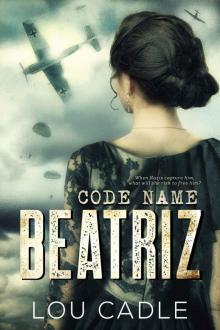 Code Name- Beatriz
Code Name- Beatriz Oil Apocalypse Collection
Oil Apocalypse Collection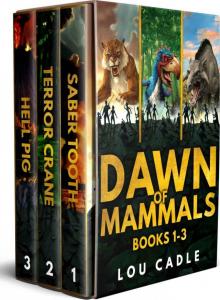 A Dawn of Mammals Collection
A Dawn of Mammals Collection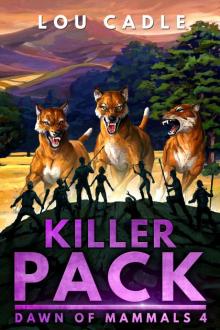 Killer Pack (Dawn of Mammals Book 4)
Killer Pack (Dawn of Mammals Book 4)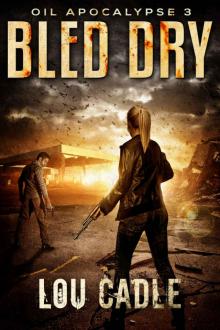 Bled Dry
Bled Dry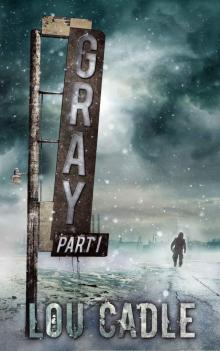 Gray (Book 1)
Gray (Book 1) Dawn of Mammals (Book 4): Killer Pack
Dawn of Mammals (Book 4): Killer Pack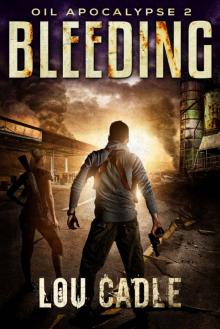 Bleeding (Oil Apocalypse Book 2)
Bleeding (Oil Apocalypse Book 2)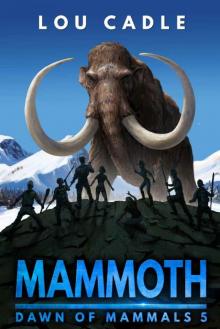 Dawn of Mammals (Book 5): Mammoth
Dawn of Mammals (Book 5): Mammoth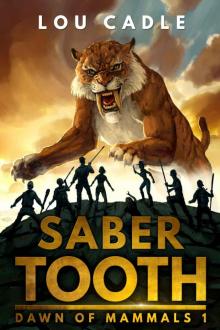 Saber Tooth (Dawn of Mammals Book 1)
Saber Tooth (Dawn of Mammals Book 1)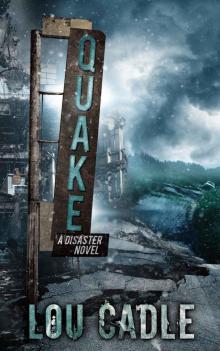 Natural Disaster (Book 2): Quake
Natural Disaster (Book 2): Quake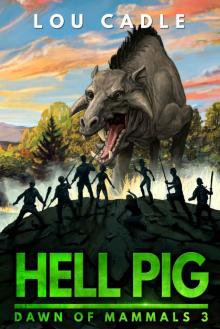 Hell Pig (Dawn of Mammals Book 3)
Hell Pig (Dawn of Mammals Book 3)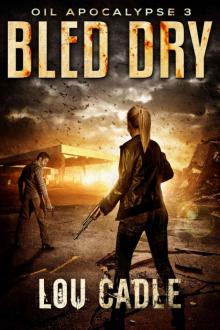 Bled Dry (Oil Apocalypse Book 3)
Bled Dry (Oil Apocalypse Book 3)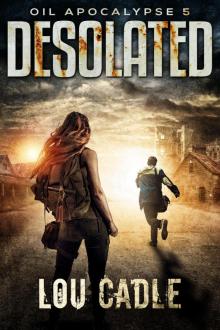 Desolated
Desolated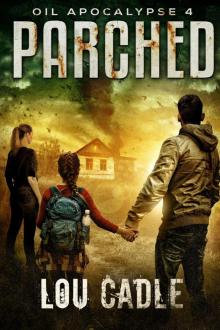 Parched
Parched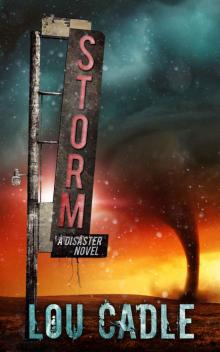 Natural Disaster (Book 3): Storm
Natural Disaster (Book 3): Storm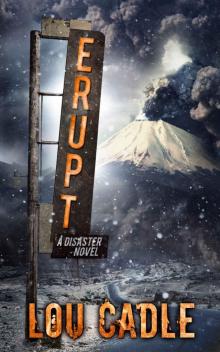 Natural Disaster (Book 1): Erupt
Natural Disaster (Book 1): Erupt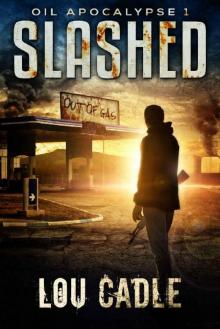 Slashed (Oil Apocalypse Book 1)
Slashed (Oil Apocalypse Book 1)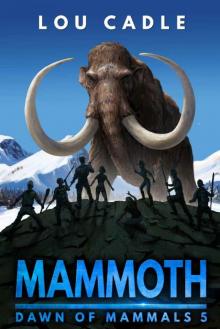 Mammoth (Dawn of Mammals Book 5)
Mammoth (Dawn of Mammals Book 5)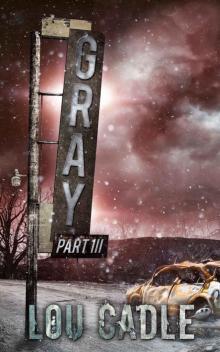 Gray (Book 3)
Gray (Book 3)